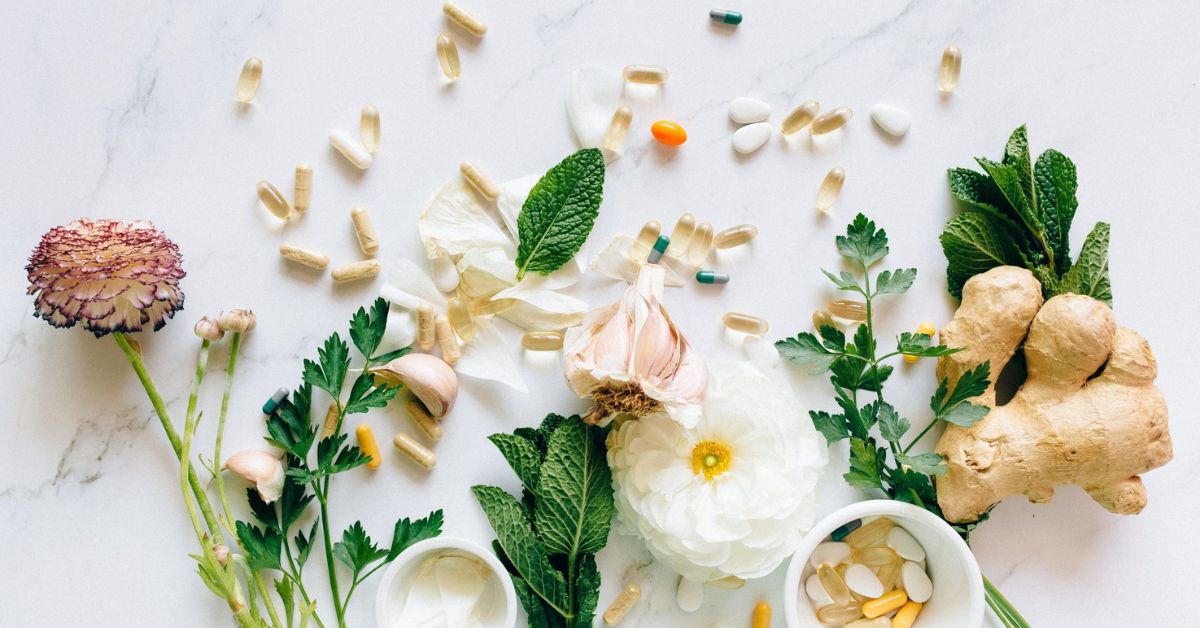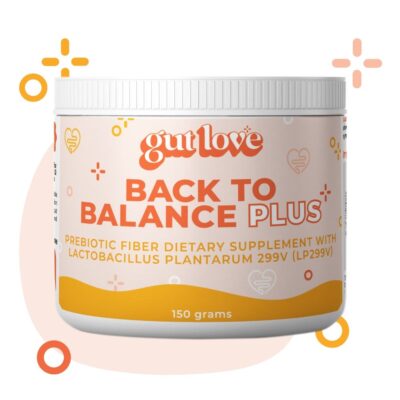The supplement industry is confusing, unregulated and worth over 42 billion dollars in the U.S. alone.
Translation: There are a lot of supplements out there, but they aren’t all created equally.
So how do you navigate this world as someone living with IBD?
I’m a dietitian who understands the ins and outs of the industry and I know that a lot of what’s on in the market isn’t going to hurt your wallet, but unfortunately probably won’t help with your UC or Crohn’s.
However, this doesn’t mean there aren’t great evidence backed supplements that can help.
Many have even been studied for their use alongside medications and have been shown to amplify or improve symptoms, reduce inflammation and increase the chances of remission.
Ideally, the best supplements are those that are third party regulated and tested for best quality.
The goal of today’s article is to list my top four picks of supplements for Crohn’s and Colitis based on my professional insight.
Keep in mind, this isn’t medical advice since I don’t know you or your history!
For best results, and to find the correct products and dose for you, I suggest you work with me in my group program which also now includes some 1:1 guidance. You can check that out here.
Anti-inflammatory Herbals: Curcumin and Boswellia
Anti-inflammatories like Boswellia and Curcumin are great options for helping to support decreases in inflammatory markers and often can be used alongside medications.
In a randomized double blind controlled study, 102 patients with active Crohn’s Disease received either Mesalamine or Boswellia (3.6 g/day) for 8 weeks.
Crohn’s symptom score (measured by CDAI) dropped in both groups and further analysis found Boswellia to be as effective as mesalazine and better tolerated (3).
In a Randomized, Double Blind, Placebo Controlled study of UC patients in Remission, 2 g of Curcumin alongside medications (sulpha/mesalamine) was given and compared to another group of just meds and placebo.
Results showed that Curcumin can help prevent flares or relapse at a much lower relapse rate- 4.6% incidence of relapse compared to 20% in the placebo group (1, 4).
Back to Balance SunFiber, GutLove
One of my favorite products is Microbiome Fuel which contains SunFiber- one of the best tolerated prebiotics that’s really easy to incorporate into smoothies and even teas (14).
It’s also my favorite product because I’ve had the best success with helping to regulate bowel movements of those with Crohn’s and Ulcerative Colitis as it helps with both constipation and diarrhea (9).
SunFiber is also helpful in reducing irritation symptoms like gas and bloating (14).
One of the other ways it is helpful is that it helps to improve our intestinal lining through creating short chain fatty acids that help in reducing inflammation as well as repairing the lining (5).
In addition, another bonus to using SunFiber is that it is also helpful in improving absorption of minerals like Ca, Fe, Zn, and Mg.
Psyllium Seed Powder
Psyllium seed (not to be confused with psyllium husk) is a gelling prebiotic similar to SunFiber that helps with supporting the growth of our helpful gut bacteria (12).
Psyllium seed powder in a study of 105 people with UC (randomized, open label trial), psyllium seed powder was given for 12 months.
After 12 months, of those taking mesalamine plus psyllium seed powder, 70% were in remission. And those taking psyllium seed powder alone compared with just mesalamine – 60% stayed in remission compared to 65% in the mesalamine group (17).
The results showed that psyllium seed powder can be another effective strategy to help support remission in Crohns and UC.
Although there is less research I could find on psyllium seed powder use in Crohn’s- it’s prebiotic effects alone are a great reason to still use it (12).
Vitamin D
Vitamin D is commonly low in Crohn’s and Colitis patients and is a risk factor for developing IBD and for flares. Lower levels of Vitamin D also correlate with more severe disease activity as well (7).
Monitoring vitamin D levels and even taking a maintenance dose of Vitamin D can be incredibly helpful with reducing the chance of flares (2).
Vitamin D is an important regulator of both our immune system and inflammation.
Vitamin D also plays an important role in ensuring the gut barrier is functioning optimally. Studies in the past few years looking at vitamin D and Crohn’s and Colitis are showing an inverse relationship with Vitamin D and inflammation scores like fecal calprotectin (measure of digestive tract inflammation)- meaning as Vitamin D levels decrease, Fecal calprotectin and inflammation increase (9).
Some studies have shown that restoring low Vitamin D in Crohn’s and Colitis can cut fecal calprotectin levels in half!
Conclusion
Navigating finding the supplements that are the best fit for you can be tricky. If you’d like to stop guessing and have access to top notch nutrition support for Crohn’s and Colitis- let me know! Reach out for a free 1:1 call here.
We can create an evidence based treatment plan that’s customized to you. If you’d rather try to learn yourself with a little guidance, apply for our Crohn’s and Colitis program – Plant Magic that also includes some 1:1 work now too!
References:
Ali, T., F. Shakir, et al. (2012). “Curcumin and Inflammatory Bowel Disease: Biological Mechanisms and Clinical Implication.” Digestion 85(4): 249-255.
Bischoff-Ferrari, H. A. 2008. Optimal serum 25-hydroxyvitamin D levels for multiple health outcomes. Adv Exp Med Biol, 624, 55-71. PMID 18348447
Gerhardt, H., Seifert, F., Buvari, P., Vogelsang, H. & Repges, R. 2001. [Therapy of active Crohn disease with Boswellia serrata extract H 15]. Z Gastroenterol, 39, 11-7. PMID 11215357
Hanai, H., T. Iida, et al. (2006). “Curcumin Maintenance Therapy for Ulcerative Colitis: Randomized, Multicenter, Double-Blind, Placebo-Controlled Trial.” Clinical Gastroenterology and Hepatology 4(12):1502-1506.
Horii, Y., Uchiyama, K., Toyokawa, Y., Hotta, Y., Tanaka, M., Yasukawa, Z., Tokunaga, M., Okubo, T., Mizushima, K., Higashimura, Y., Dohi, O., Okayama, T., Yoshida, N., Katada, K., Kamada, K., Handa, O., Ishikawa, T., Takagi, T., Konishi, H., Naito, Y., … Itoh, Y. (2016). Partially hydrolyzed guar gum enhances colonic epithelial wound healing via activation of RhoA and ERK1/2. Food & function, 7(7), 3176–3183. https://doi.org/10.1039/c6fo00177g
Jørgensen, S. P., Agnholt, J., Glerup, H., Lyhne, S., Villadsen, G. E., Hvas, C. L., Bartels, L. E., Kelsen, J., Christensen, L. A. & Dahlerup, J. F. 2010. Clinical trial: vitamin D3 treatment in Crohn’s disease – a randomized double-blind placebo-controlled study. Alimentary Pharmacology & Therapeutics, 32, 377-383. PMID
Joseph, A. J., George, B., Pulimood, A. B., Seshadri, M. S. & Chacko, A. 2009. 25 (OH) vitamin D level in Crohn’s disease: association with sun exposure & disease activity. Indian J Med Res, 130, 133-7. PMID 19797809
Kong, J., Z. Zhang, et al. (2008). “Novel role of the vitamin D receptor in maintaining the integrity of the intestinal mucosal barrier.” Am J Physiol Gastrointest Liver Physiol 294(1): G208-216.
López-Muñoz P;B eltrán B;Sáez-González E; Alba A;Nos P;Iborra M;. (n.d.). Influence of Vitamin D deficiency on inflammatory markers and clinical disease activity in ibd patients. Retrieved April 23, 2021, from https://pubmed.ncbi.nlm.nih.gov/31083541/
M S. (n.d.). Bioavailability of magnesium diglycinate vs magnesium oxide in patients with ileal resection. Retrieved April 23, 2021, from https://pubmed.ncbi.nlm.nih.gov/7815675/
Nicholson, I., A. M. Dalzell, et al. (2012). “Vitamin D as a therapy for colitis: A systematic review.” Journal of Crohn’s and Colitis 6(4): 405-411.
Nie, Y., Lin, Q., & Luo, F. (2017). Effects of Non-Starch Polysaccharides on Inflammatory Bowel Disease. International journal of molecular sciences, 18(7), 1372. https://doi.org/10.3390/ijms18071372
Niv, E., Halak, A., Tommy, E., Yanai, H., Strul, H., Naftali, T., & Vaisman, N. (2016). Randomized clinical study: Partially hydrolyzed guar gum (PHGG) versus placebo in the treatment of patients with irritable bowel syndrome. Nutrition & metabolism, 13, 10. https://doi.org/10.1186/s12986-016-0070-5
Parisi, G. C., Zilli, M., Miani, M. P., Carrara, M., Bottona, E., Verdianelli, G., Battaglia, G., Desideri, S., Faedo, A., Marzolino, C., Tonon, A., Ermani, M., & Leandro, G. (2002). High-fiber diet supplementation in patients with irritable bowel syndrome (IBS): a multicenter, randomized, open trial comparison between wheat bran diet and partially hydrolyzed guar gum (PHGG). Digestive diseases and sciences, 47(8), 1697–1704. https://doi.org/10.1023/a:1016419906546
PMC, E. (n.d.). Europe pmc. Retrieved April 23, 2021, from http://europepmc.org/article/MED/28654020
Rao, T. P., & Quartarone, G. (2019). Role of guar fiber in improving digestive health and function. Nutrition (Burbank, Los Angeles County, Calif.), 59, 158–169. https://doi.org/10.1016/j.nut.2018.07.109
Rodrı́guez-Cabezas, M. E., J. Gálvez, et al. (2003). “Intestinal anti-inflammatory activity of dietary fiber (Plantago ovata seeds) in HLA-B27 transgenic rats.” Clinical Nutrition 22(5): 463-471







How much Vitamin d should I take